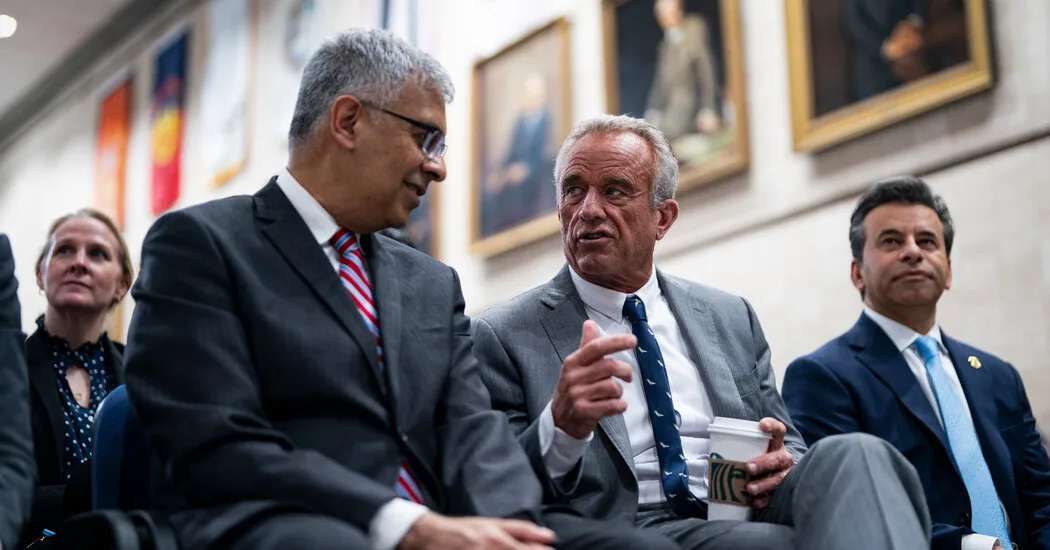

The director of the National Institutes of Health previously floated — then walked back — the idea of an autism registry, alarming researchers and parents.
After weeks of confusion about his plans for autism research, Health Secretary Robert F. Kennedy Jr. said on Wednesday that his department would build a “real-world platform” that would allow researchers to hunt for causes of the disorder by examining insurance claims, electronic medical records and wearable devices like smart watches.
The department will draw the records from Medicare and Medicaid, which together cover around 40 percent of Americans. The National Institutes of Health and the Centers for Medicare and Medicaid Services will partner on the project, Mr. Kennedy said.
But it was unclear whether the announcement would assuage researchers, advocates and parents, who reacted with alarm last month when Mr. Kennedy and Dr. Jay Bhattacharya, the director of the National Institutes of Health, floated — and then walked back — the idea of an autism registry for research. Many feared privacy violations.
In Illinois on Wednesday, Governor JB Pritzker, a Democrat, issued an executive order aimed at protecting the privacy rights of state residents with autism. His office said he made the move in response to “rising national concerns about efforts to create federal autism registries or databases without clear legal safeguards or accountability.”
Mr. Kennedy’s intense focus on autism stems from his insistence, despite evidence otherwise, that vaccines are to blame for the rapid rise in autism diagnoses in the United States. The Centers for Disease Control and Prevention recently reported that about 1 in 31, or 3.2 percent, of American eight-year-olds have received a diagnosis.
For the new database, the health department said it would take steps to ensure the privacy of medical data. But it is not clear precisely what kind of research will be conducted. Mr. Kennedy said in the announcement that his department would use the platform “to uncover the root causes of autism and other chronic diseases.”